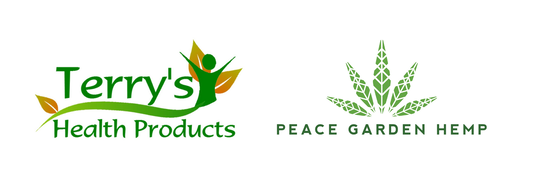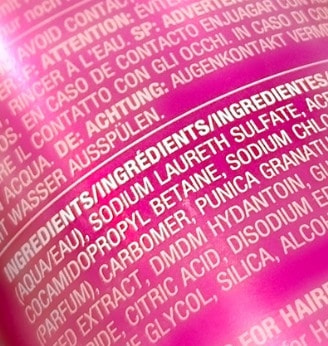|
You have probably heard that you should avoid sulfates, such as Sodium Laureth Sulfate (SLES), in your toothpaste, shampoo, detergents, and skincare products. Do you know why? Read more below to learn why. Not all sulfates are of equal concern, but SLES is one of the most widely used sulfate ingredient and it is the sulfate to be most cautious about. SLES is a detergent and foaming agent that will cause the product to thicken and lather. In toothpaste this can help to dissolve dental plaque while you are brushing, and in shampoo it can bind to oils so they rinse out more easily. While it is a helpful ingredient to aid in the cleaning process, there are good reasons to consider avoiding it, especially when there are alternative ingredients that are just as effective and are safe to use.
One of the most common concerns with SLES is that it is harsh and can irritate our skin, but it has been called into question because it may lead to cancer growth. While SLES itself is not carcinogenic, the reason for this concern is because SLES is usually processed with Ethylene Oxide in order to reduce its harshness. A side effect of this processing is the creation of the biproduct 1,4 dioxane, which is recognized as a probable carcinogen to humans, animals, and aquatic life according to the Environmental Protection Agency. 1,4 dioxane residue is often found in SLES, which we can then ingest or use on our bodies. There are alternative methods of processing SLES, but most manufacturers use Ethylene Oxide because it is the most cost effective solution. This processing method can keep the cost of the final product low. We also should consider the environmental impact of the products we choose to use. SLES is in cleansing products designed to be rinsed away down our drains, and much of what we rinse down the drain ends up in our water sources. SLES is toxic to aquatic life in our rivers, lakes, and oceans. Because it acts like an insecticide and herbicide, it can negatively affect the land supplied by these water sources. It has the ability to quickly go through the soil into groundwater. Long Island, New York is currently facing trouble with well water being highly contaminated by SLES and its potentially carcinogenic biproduct 1,4 dioxane, and the method to filter it out of the water is very expensive. In fact, it is so difficult to filter out of the water supply that no waste water treatment plant filters it out for the tap water supply. The trouble with 1,4 dioxane isn't just from SLES. Other ingredients are processed with Ethylene Oxide too. According to the Campaign for Safe Cosmetics, we should also avoid the ingredients: PEG compounds, and chemicals that include the clauses xynol, ceteareth, and oleth. Studying chemicals and their effects usually takes years, and so we should not expect that manufacturers will be required to change their processing methods any time soon. The burden of making safe and environmentally sound choices falls on us consumers, which is why it is important to choose products with the safest ingredients that will not negatively impact our environment. So, what is safe to use? Well, anything certified organic! The organic certification standards do not allow any ingredient to be processed with ethylene oxide, so 1,4 dioxane creation will not be a concern. There are alternative ingredients that are less harsh, just as effective, and do not produce carcinogenic biproducts! You might see some of these ingredients in the safer non-toxic products we carry:
Sources: https://www.epa.gov/sites/production/files/2014-03/documents/ffrro_factsheet_contaminant_14-dioxane_january2014_final.pdf https://www.safecosmetics.org/get-the-facts/chemicals-of-concern/14-dioxane/ https://www.sciencedirect.com/science/article/abs/pii/S0043135413008014 https://www.wshu.org/post/report-long-island-has-most-contaminated-drinking-water-new-york#stream/0 https://www.newsday.com/long-island/politics/1-4-dioxane-pfos-nyaw-american-water-1.41245594
1 Comment
Lonna Brooks
2/17/2021 12:00:19 pm
This is a great blog post!
Reply
Leave a Reply. |
AuthorThe Health Squad is here to help guide you through this crazy chemical and toxin ridden world. We will provide tips to living a more natural lifestyle. Archives
January 2023
Categories |


 RSS Feed
RSS Feed